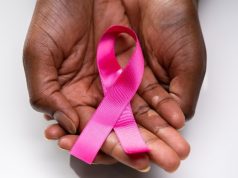Findings in women receiving chemotherapy for breast cancer
TUESDAY, Feb. 14, 2017 (HealthDay News) — Scalp cooling devices may reduce chemotherapy-induced alopecia in patients with breast cancer, according to two studies published in the Feb. 14 issue of the Journal of the American Medical Association.
Julie Nangia, M.D., assistant professor and breast cancer expert with the Baylor College of Medicine in Houston, and colleagues included 182 breast cancer patients in one study. Two-thirds were randomly chosen to receive scalp cooling, and the rest received chemotherapy without a cooling cap. The trial was halted after data came in for the first 142 patients and it became clear that cooling had a significant effect in slowing or stopping hair loss, Nangia told HealthDay.
The second study, conducted at five U.S. medical centers and led by Hope Rugo, M.D., from the University of California, San Francisco, involved 101 breast cancer patients fitted with a cooling cap and 16 patients in a control group. Again, all patients without the cap lost their hair, while hair loss was limited or halted in those who used the scalp cooling cap.
Nangia acknowledged concerns that restricting flow of chemo to the scalp could protect cancer cells hiding there. Both research teams plan to follow patients for at least five years to see if there’s any increased risk for cancer recurrence. Nangia added that previous European studies have found no effect on long-term cancer survival.
Both teams received funding from the makers of the cooling devices used in each study, Paxman Coolers of England and Dignitana of Sweden, respectively.
Full Text 1 (subscription or payment may be required)
Full Text 2 (subscription or payment may be required)
Editorial (subscription or payment may be required)
Copyright © 2017 HealthDay. All rights reserved.








